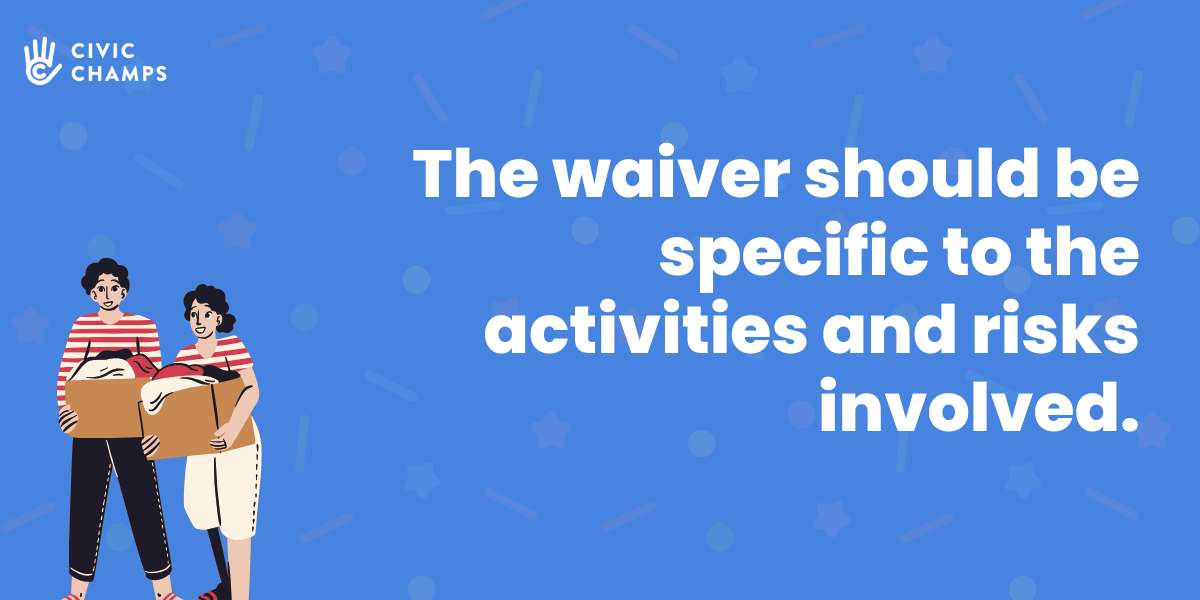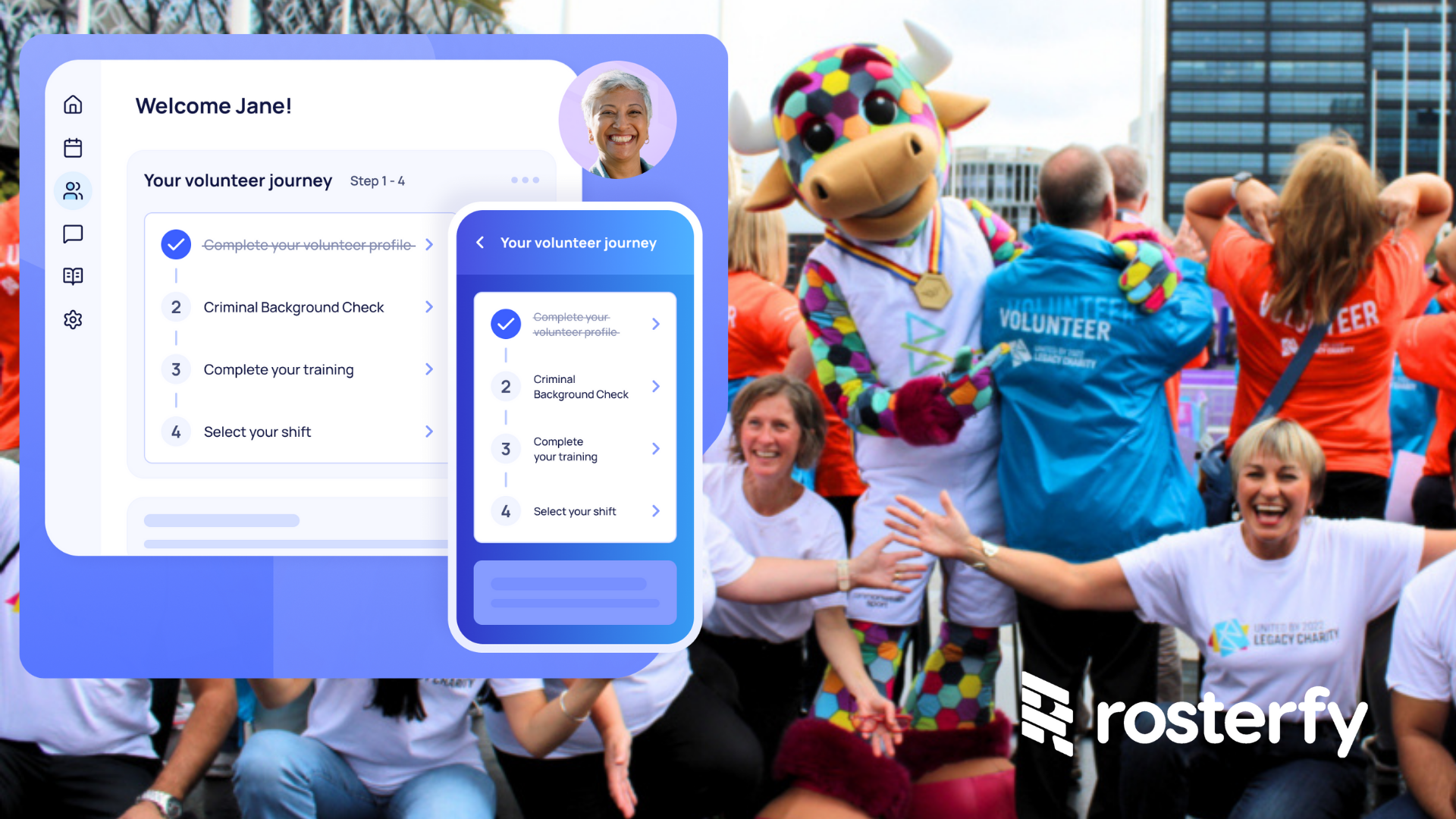Understanding the validity of liability waivers is crucial for organizations, especially nonprofits that rely on volunteers. A well-structured waiver not only protects your organization but also ensures that participants are fully informed about the risks involved. In this article, we will explore the essential elements that make a volunteer waiver valid, providing you with the insights needed to safeguard your organization effectively.
What makes a liability waiver valid?
A liability waiver must clearly outline the risks involved in the activity. This means that the document should specify what participants are agreeing to and the potential dangers they may face. For example, if volunteers are participating in a physical activity, the waiver should detail the specific risks associated with that activity, such as the possibility of injury.
The language used should be clear and understandable to the signer. Legal jargon can confuse participants, making it essential to use straightforward language that conveys the necessary information without ambiguity. A well-written waiver should be comprehensive yet accessible, ensuring that all parties fully comprehend what they are signing.
Key elements to consider when drafting a waiver include:
- Clear identification of risks
- Simple, non-legalistic language
- Comprehensive coverage of the activity
For more on crafting effective waivers, consider exploring how to write a liability waiver that focuses on clarity and comprehensiveness. Additionally, Civic Champs offers templates and resources that can assist organizations in drafting waivers that meet legal requirements while being user-friendly.
What makes a liability waiver legally binding?
For a waiver to be considered legally binding, it must be signed voluntarily without any coercion. This means that participants should not feel pressured to sign the waiver; they should have the freedom to choose whether or not to participate in the activity. Civic Champs emphasizes the importance of creating an environment where volunteers feel comfortable and informed before signing any documents.
Additionally, the waiver should be specific to the activities and risks involved. A general waiver that does not address the particular circumstances of the activity may not hold up in court. It is advisable to consult a release of liability waiver sample to ensure that your waiver meets legal standards and adequately protects your organization.
By leveraging Civic Champs' digital onboarding features, organizations can ensure that waivers are tailored to specific events and activities, enhancing their legal standing.

Are there any exceptions to liability waivers?
While liability waivers are generally enforceable, there are exceptions. Liability waivers may not be enforceable in cases of gross negligence or willful misconduct. If an organization fails to uphold a reasonable standard of care, a waiver may not protect them from legal claims. This is particularly relevant for nonprofits that engage volunteers in potentially hazardous activities, where the duty of care is paramount.
Moreover, certain jurisdictions may have specific laws that limit the enforceability of waivers. For instance, some states categorically refuse to enforce waivers of personal injury claims. It is essential to be aware of the legal landscape in your area, as these laws can vary significantly.
Consider these points regarding exceptions:
- Waivers may be void in cases of gross negligence
- Jurisdiction-specific laws may limit enforceability
- Understanding local regulations is crucial
For organizations working with volunteers, an unpaid volunteer agreement template can highlight exceptions in volunteer scenarios, ensuring that all legal bases are covered. Civic Champs provides resources that help organizations navigate these complexities, ensuring compliance with local regulations.
Why is a waiver form important?
A waiver form protects organizations from legal claims arising from participant injuries. By having participants acknowledge the risks involved, organizations can mitigate their liability and focus on their mission. This is particularly important for nonprofits that rely heavily on volunteer support.
The Civic Champs platform not only simplifies the process of collecting waivers but also allows organizations to track and manage volunteer engagement efficiently. Furthermore, a waiver establishes a clear understanding of the risks involved for participants. It ensures that volunteers are aware of what they are agreeing to, fostering a culture of transparency and trust.
Key benefits of having a waiver form include:
- Protection against legal claims
- Clear communication of risks to participants
- Enhanced trust and transparency within the organization
A well-crafted volunteer agreement for nonprofit can emphasize the importance of waivers in volunteer settings, ensuring that everyone is on the same page regarding expectations and responsibilities.
---
If you’re looking for ways to improve your organization’s volunteer program, be sure to check out Civic Champs. Our powerful platform is designed to make volunteer management a breeze so you and your supporters can stay focused on the mission. Click here to schedule a demo today.

As CEO of Civic Champs, I lead our team of passionate change leaders to create technology solutions to create a seamless and rewarding volunteering experience for both volunteers and service organizations.



.png)
